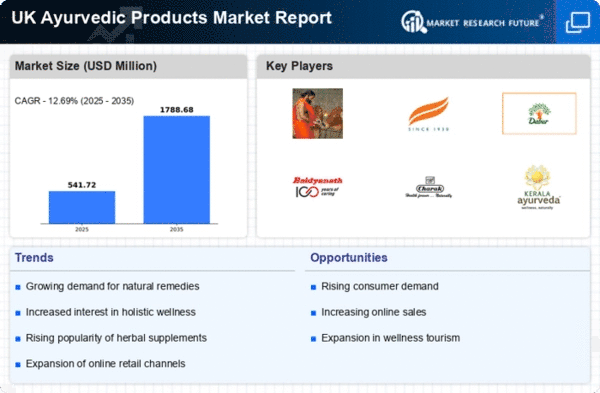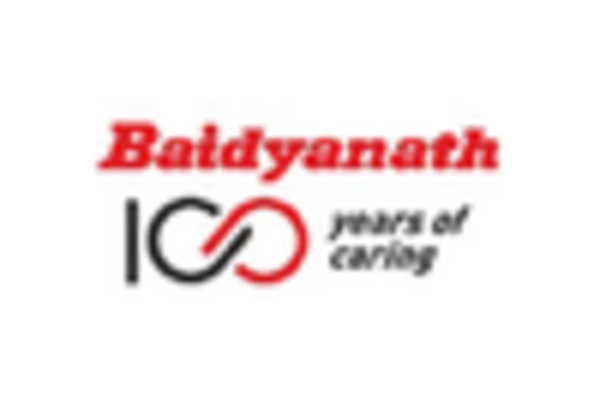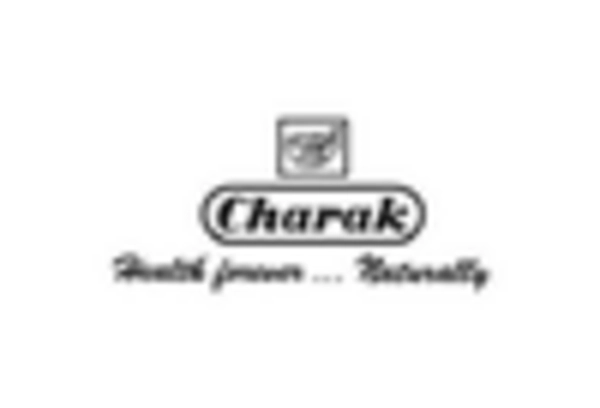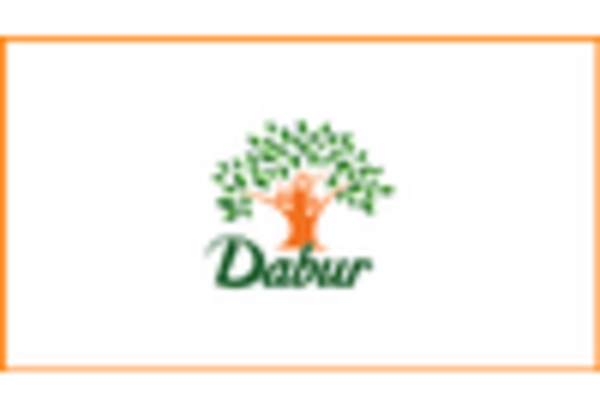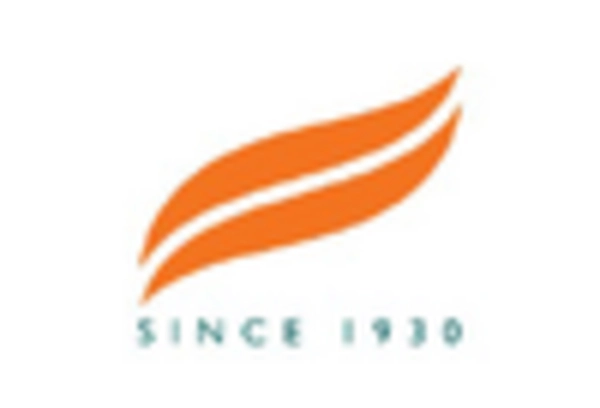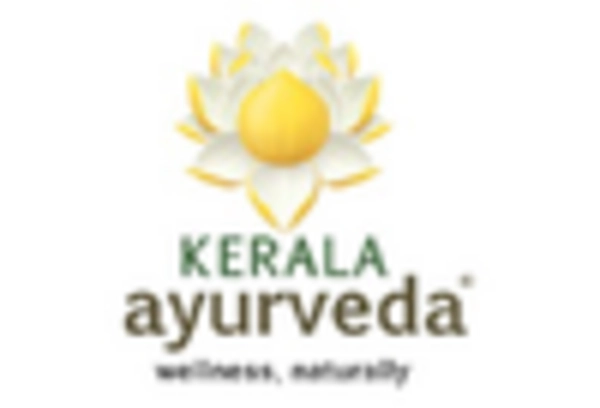Shift Towards Preventive Healthcare
There is a discernible shift in consumer preferences towards preventive healthcare, which is significantly impacting the ayurvedic products market. As individuals increasingly prioritize wellness and disease prevention, they are turning to natural remedies that align with this philosophy. The ayurvedic approach, which emphasizes balance and holistic health, resonates well with this trend. In the UK, the preventive healthcare market is projected to grow by approximately 12% annually, with ayurvedic products playing a crucial role in this expansion. This shift suggests that consumers are more inclined to invest in products that not only address existing health issues but also promote long-term wellness. Consequently, the ayurvedic products market is likely to see a rise in demand for formulations that support immunity, stress relief, and overall vitality, reflecting a broader societal movement towards health consciousness.
Regulatory Support for Herbal Products
The ayurvedic products market benefits from increasing regulatory support aimed at promoting herbal and natural products. In the UK, regulatory bodies are gradually establishing frameworks that facilitate the approval and marketing of ayurvedic products, ensuring they meet safety and efficacy standards. This regulatory backing not only enhances consumer trust but also encourages manufacturers to innovate and expand their product lines. The UK government has been actively promoting the use of traditional herbal medicines, which could potentially lead to a market growth of around 10% over the next few years. As regulations become more favorable, the ayurvedic products market is likely to attract new entrants, further diversifying the offerings available to consumers. This supportive environment may also encourage collaborations between traditional practitioners and modern healthcare providers, thereby enhancing the credibility of ayurvedic products.
Rising Popularity of Alternative Therapies
There is a rise in the popularity of alternative therapies as consumers seek holistic approaches to health.. This trend is characterized by an increasing acceptance of non-conventional treatments, including ayurveda, which is often viewed as a complementary option to mainstream medicine. In the UK, the alternative medicine sector has been growing steadily, with a reported increase of around 8% in consumer spending on such therapies. This growing interest in alternative therapies is likely to bolster the ayurvedic products market, as consumers explore various options for managing health conditions. The integration of ayurvedic principles into wellness routines is becoming more commonplace, suggesting that the market may continue to expand as more individuals seek personalized and natural solutions to their health concerns.
Growing Consumer Awareness of Health Benefits
The ayurvedic products market is experiencing a notable surge in consumer awareness regarding the health benefits associated with natural remedies. This heightened awareness is largely driven by an increasing number of studies and publications that highlight the efficacy of ayurvedic ingredients in promoting overall well-being. As consumers become more informed, they are more likely to seek out products that align with their health goals. In the UK, the market for herbal and ayurvedic products has seen a growth rate of approximately 15% annually, indicating a robust demand for these alternatives. This trend suggests that consumers are actively looking for holistic solutions, thereby propelling the ayurvedic products market forward. The shift towards preventive healthcare is likely to further enhance the appeal of ayurvedic offerings, as they are perceived as safer and more natural compared to synthetic options.
Influence of Social Media and Online Platforms
The ayurvedic products market is increasingly influenced by social media and online platforms, which play a pivotal role in shaping consumer perceptions and purchasing behaviors. The proliferation of digital marketing strategies has enabled brands to reach a wider audience, particularly among younger demographics who are more inclined to explore natural and holistic products. In the UK, online sales of ayurvedic products have surged, accounting for approximately 25% of total sales in the sector. This trend indicates that consumers are not only seeking information online but are also making purchases through digital channels. The ability to share experiences and reviews on social media further enhances the visibility of ayurvedic products, potentially driving market growth. As brands leverage these platforms to engage with consumers, the ayurvedic products market is likely to see continued expansion and innovation.


